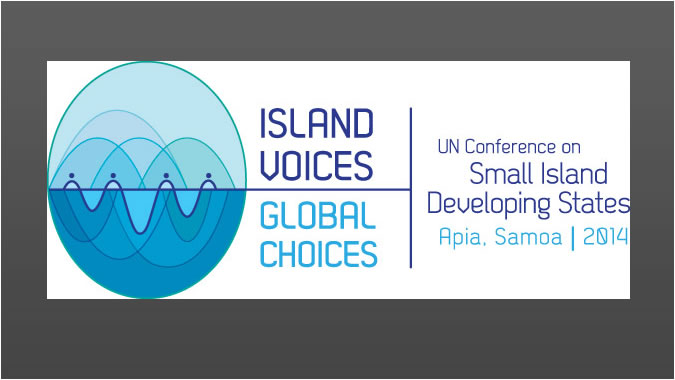Authorities Analyzed Vulnerability of Caribbean SIDS at ECLAC Event during the Samoa Conference
Work area(s)
Ministers from several Caribbean countries addressed the challenges posed as a result of small size and limited capacity.

(September 3, 2014) Authorities from several Caribbean Small Island Developing States (SIDS) and experts from the United Nations discussed today the critical factors that underpin the vulnerability of Caribbean SIDS, during the Third International Conference on SIDS being held this week in Samoa.
In a side event of the Conference hosted by the Economic Commission for Latin America and the Caribbean (ECLAC) in collaboration with the Caribbean Community Secretariat, entitled "The vulnerability of Caribbean SIDS revisited - it's all about size", ministers gathered in a panel discussion and mentioned the Caribbean SIDS journey and the role of the wider international community.
The speakers addressed the challenges related to the vulnerability of Caribbean SIDS as a result of small size and resulting limited capacity. The areas of trade and finance, governance and institutional capacity, disaster management and regional integration were discussed.
Also, the issue of classification of the majority of Caribbean SIDS as middle income countries based on Gross Domestic Product (GDP) was analyzed and opportunities arising from small size were explored within the context of regional integration.
"The development imperatives that drive national decision making are related to size", expressed at the opening Arnold J. Nicholson, Minister of Foreign Affairs and Foreign Trade of Jamaica, who moderated the meeting.
Raúl García-Buchaca, Director of ECLAC's Programme Planning and Operations Division, welcomed participants to the side event and indicated that the discussion would focus on the critical factors that underpin the vulnerability of Caribbean SIDS and that are based on their unique characteristics.
"The middle income status based on GDP per capita does not consider the inequalities that exist even at the national level. Narrowing of gaps within countries is essential and this could be done through collaboration", García-Buchaca emphasized.
A special statement by John Ashe, President of the 68th Session of the United Nations' General Assembly, was delivered during the meeting. It focused on the particular vulnerabilities of Caribbean SIDS and suggested that they should be mainstreamed into the post-2015 development agenda.
Winston Dookeran, Minister of Foreign Affairs of Trinidad and Tobago, noted that conflicting interests make it difficult to work together in the theme of SIDS. He suggested looking to the systemic problems that create the conditions in which we live, and questioned if the Caribbean vulnerability comes from size, geography or structure. He stated that buffers to external shocks should be built by working together with development partners and international financial institutions. "Size may well be an opportunity rather than a limitation", he declared.
Carolyn Rodrigues-Birkett, Minister of Foreign Affairs of Guyana, noted that the Caribbean would need over 7% growth to be sustainable. Last year the highest growth rate in the region was 5.3% (in Guyana), according to ECLAC's Economic Survey of Latin America and the Caribbean. She mentioned the challenge in diversifying Caribbean economies within the new global economic order to promote economic growth.
Camillo Gonsalves, Minister of Foreign Affairs of St. Vincent and the Grenadines, focused on the vulnerability of Caribbean SIDS to natural disasters and their impact on the economies. "The impacts of natural disasters are eroding the gains in economic growth", he said. He added that because of their small GDP, the islands are unable to finance adaptation and recovery from natural disasters and recommended regional integration, development financing, preferential trade and debt relief and restructuring to overcome vulnerability and small size.
Participants in the side event also introduced the vulnerability-resilience profile for arriving at an index, but warned that poverty and unemployment continue to increase in the region. The resilience fund for SIDS could be a good measure and stressed the importance of partnerships to obtain productive relationships.
Finally, the ministers conveyed that the human capital of the Caribbean needs to be recognised and public policy needs to be revolutionised. "The political structure needs to be changed to build public policy", they stated.
More information at www.cepal.org.
Related content

ECLAC Reaffirms Commitment to Support Caribbean SIDS into the Post 2015 Development Agenda
Building resilience to external shocks and addressing vulnerability of island States are key issues to attain sustainable development, the UN Commission stated.
Country(ies)
- Caribbean
-
Samoa
Contact
Public Information Unit
- prensa@cepal.org
- (56 2) 2210 2040